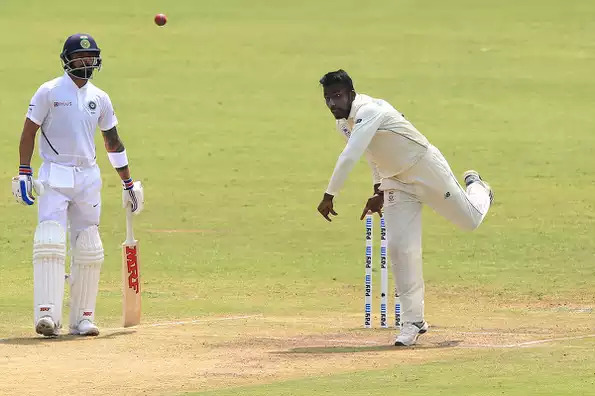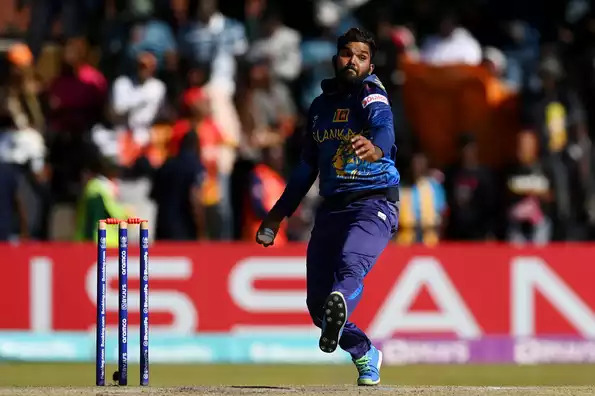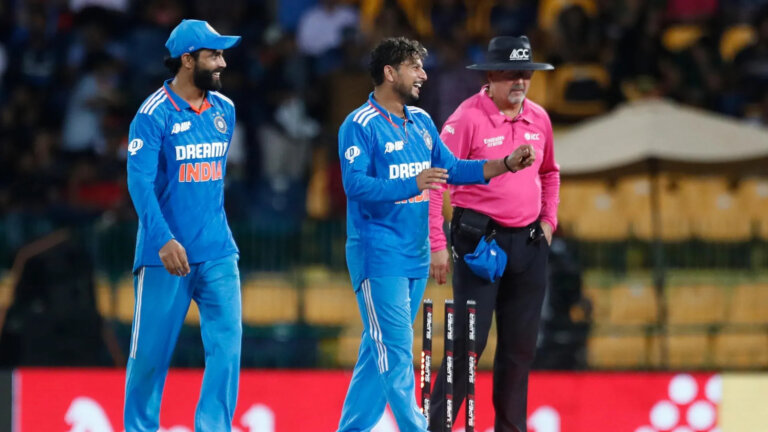
You wouldn’t assume there’s much to celebrate if your team has been dismissed for 131 and 185 runs and lost by 160 runs over the course of three days. However, if you’re Senuran Muthusamy.
The sluggish left-handed batsman who was in South Africa from Monday to Wednesday in Pallekele, Sri Lanka, a team that suffered this fate at the hands of their opponents recorded career-best first-class match figures of 12/175 by taking 7/122 and 5/53. None of the other visitors’ bowlers captured more than two wickets per innings and three for the match.
Muthusamy told Cric-Advisor on Wednesday, “It was incredible to bowl in these conditions, and to have some success is a special accomplishment.” “These [Sri Lankan] players grow up playing on these surfaces, so it’s great to be able to take wickets against them and continue to learn on these conditions.”
In South Africa, where captains and coaches must talk their fast bowlers down from the high they get when they sight another fast, bouncing, seaming paradise, Muthusamy grew up in very different circumstances. Whatever the pitch, successful bowling is a necessity.
Nonetheless, the truth cannot be disputed. South Africa’s 37 spin bowlers in domestic Tests have claimed 337 wickets at an average of 37.72. This pales in comparison to the 2,243 wickets taken at an average of 23.94 by their 66 fast bowlers in home Tests. It is 9.11 wickets per spinner versus 33.99 per pacer on average.
Does Muthusamy have the flip-side of the fast bowler’s conversation when he sees surfaces like Pallekele’s? “You’ve got to rein yourself in,” he said. “We don’t often play in conditions that suit us, that favour spin. That’s just the reality of playing in South Africa.”
South African bowlers’ relationship with the subcontinent is complicated. Their 34 quicks who have bowled in Tests there have taken 482 wickets at an average of 30.06, which is a higher average than any non-Asian side other than the West Indies, who average 28.63. Their 32 spinners have taken 267 wickets at an average of 37.75, trailing only Australia and England in terms of average.
Their quick bowlers have taken 16 five-wicket hauls and one 10-wicket haul in Tests in Asia, while their medium bowlers have taken 13 and two. This skews the equation in favor of pace, but the fact that fast bowlers have delivered 61.72 percent of South Africa’s deliveries in subcontinental Tests.
Muthusamy brought plenty of that kind of attacking intent to his performance in Pallekele, where nine of his dozen strikes were single-handed: lbw, bowled, or caught and bowled. What was his approach? “To try and get wickets; to bowl the opposition out,” he said.
“In the second innings we didn’t want them to get too many because every run they got we would have to chase in the fourth innings, which isn’t easy in the subcontinent. I probably bowled slightly better in the second innings, and things happened sooner for me. The fielders were great and the seam bowlers supported really well, especially in the second innings. Hopefully we can bat better in the next match.”
Ah yeah. That’s all. Only Kagiso Rabada has taken more Test wickets for South Africa since Keshav Maharaj made his debut in Perth in November 2016. Since Maharaj’s arrival, only Nathan Lyon, R. Ashwin, and Ravindra Jadeja have had greater success among spinners globally. Consequently, Muthusamy must regretfully benefit from Maharaj’s absence from the fray for at least six months as a result of rupturing an Achilles during a Test against West Indies at the Wanderers in March.




